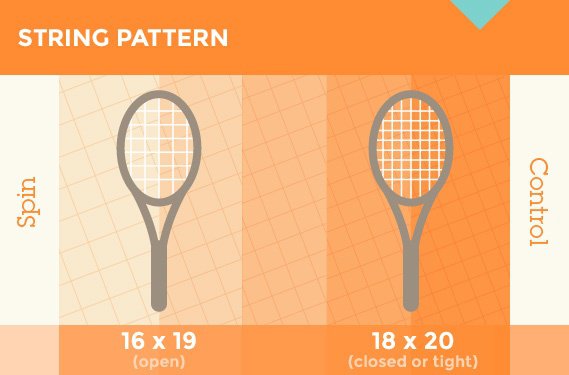How to Stay Active in Tennis as You Get Older
Playing tennis is a sport that is enjoyed by people of all ages. Tennis provides numerous benefits, including physical exercise, socialization, and improved mental health. It is a lifetime sport that can be played and enjoyed by players of any age. While there is no hard and fast rule about what age is too old to play tennis, there are some factors that may impact a player’s ability to continue playing as they age.

Adapting Your Tennis Game as You Age
As we age, our bodies undergo numerous changes that may impact our ability to play tennis. These changes include a decrease in muscle mass, bone density, and flexibility. Additionally, injuries may become more frequent and take longer to heal.
Despite these challenges, many older players continue to enjoy tennis well into their senior years. The key to staying active in tennis is to adapt your game to your changing physical abilities. This may mean using a lighter racket, playing on a slower surface, or engaging in less intense matches.
One of the biggest concerns that older tennis players have is whether they should engage in intensive rallies later in life. However, it is important to remember that tennis can be played at any age.
Read Also: Best Tennis Rackets For Petite Female
Coach Marcin Bieniek explains how to successfully make this sport a part of your lifetime journey. There are many examples of people in different age groups running and hitting yellow balls at tennis clubs. Young children are performing fun activities with a racquet in hand and developing a passion for this sport.
Competitive juniors are chasing every ball with the same intensity, pursuing their dream of becoming a Grand Slam champion. Adults take private lessons to work on their technique or play local league matches to always compete against others. And then we have seniors, who may not focus on intensity, but still want to have fun, especially while playing doubles. These examples confirm that tennis can be successfully played by anyone and age shouldn’t be considered an obstacle.
Benefits of Playing Tennis for Seniors
Another important consideration for older tennis players is to take care of their bodies through proper nutrition and exercise. Regular physical activity, such as stretching and strength training, can help reduce the risk of injury and keep the body in good condition for playing tennis.
By having regular tennis experiences, we improve our aerobic capacity, our nervous system works more efficiently, and we challenge our brain while solving problems on the court. We also meet other tennis enthusiasts and have goals that allow us to improve ourselves in different areas of personal development.
Read Also: Best Tennis Shoes for Women with Wide Feet
However, some players stop playing tennis because of different reasons. Sometimes they see no improvement in their game and think it is because of age. Other times they get injured and believe that tennis is the cause of the injury. There are also players who find tennis too intensive and they look for other activities that don’t put as many demands on their body and mind.
Ultimately, the decision of when to stop playing tennis is a personal one. Some players may choose to continue playing well into their senior years, while others may decide to retire from the sport earlier.
The important thing is to listen to your body and make choices that are in your best interest. Some players mistakenly think that when they get older, they can’t significantly change their habits and that their level of performance will stay the same for the rest of their careers. However, this is not true.
When you are 30 or older, you are already an adult with a lot of experience, wisdom, and consciousness. Use these advantages to take your game to the next level every month you continue your career. Invest in private lessons with a professional tennis coach to get an individual plan for your strengths and weaknesses.
Start reading tennis-related books to analyze your tactical habits. Schedule an appointment with a sport psychologist to understand why you find it difficult to play up to your potential while competing for points. When you are older, you actually have more opportunities to grow because your personal and life situations are at a completely different level than many years as people age, it is natural for their bodies to undergo certain changes that may impact their physical abilities. The decrease in muscle mass, bone density, and flexibility can make it challenging to continue playing tennis.
Read Also: Best Tennis Shoes For Nurses with Plantar Fasciitis
However, despite these challenges, many older players continue to enjoy tennis well into their senior years. The key to staying active in tennis is to adapt your game to your changing physical abilities. This may mean using a lighter racket, playing on a slower surface, or engaging in less intense matches.
Coach Marcin Bieniek, a former professional tennis player and experienced coach, emphasizes the importance of adapting one’s game to their changing physical abilities in order to continue playing tennis well into their senior years. Bieniek suggests that players should focus on their strengths and develop a game plan that is tailored to their physical abilities.
Additionally, taking care of one’s body through proper nutrition and exercise is critical for staying healthy and active on and off the court. Regular physical activity, such as stretching and strength training, can help reduce the risk of injury and keep the body in good condition for playing tennis.
Taking Care of Your Body to Play Tennis Longer
Furthermore, playing tennis provides numerous benefits beyond physical exercise. It is a social activity that allows players to meet and interact with other tennis enthusiasts. It also challenges the brain while solving problems on the court, improving cognitive function and mental health. Tennis can be a part of one’s lifetime journey, allowing players to continually improve and grow in different areas of personal development.
However, some players may stop playing tennis due to various reasons. Some may believe that they are not improving and blame it on their age, while others may experience injuries and believe that tennis is too dangerous for their health. Additionally, some players may find tennis too intensive and look for other activities that don’t put as many demands on their body and mind.
Ultimately, the decision of when to stop playing tennis is a personal one. Some players may choose to continue playing well into their senior years, while others may decide to retire from the sport earlier. The important thing is to listen to your body and make choices that are in your best interest.
Challenges of Playing Tennis as You Age
It is also important to recognize that age is not a limiting factor when it comes to playing tennis. While the physical changes that come with aging may make it challenging to play, with the right approach, older players can continue to enjoy the sport well into their senior years. By adapting their game and taking care of their bodies, older players can stay active and healthy both on and off the court.
Making the Decision to Continue or Retire from Tennis
Moreover, older players have the advantage of experience, wisdom, and consciousness, which they can use to take their game to the next level. They can invest in private lessons with a professional tennis coach to get an individual plan for their strengths and weaknesses.
Opportunities for Personal Growth in Tennis at Any Age
They can also start reading tennis-related books to analyze their tactical habits and schedule an appointment with a sport psychologist to understand why they find it difficult to play up to their potential while competing for points.
In conclusion, tennis can be played at any age. While there is no hard and fast rule about what age is too old to play tennis, older players can continue to enjoy the sport by adapting their game and taking care of their bodies.
By recognizing that age is not a limiting factor and by utilizing their experience and wisdom, older players can continue to grow and improve both on and off the court. Tennis is not just a sport, but a lifetime journey that can provide numerous benefits for players of all ages.






